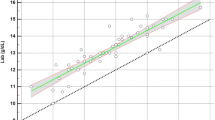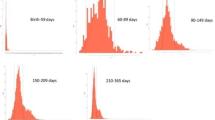Abstract
Recent use of noninvasive and continuous hemoglobin (SpHb) concentration monitor has emerged as an alternative to invasive laboratory-based hematological analysis. Unlike delayed laboratory based measures of hemoglobin (HgB), SpHb monitors can provide real-time information about the HgB levels. Real-time SpHb measurements will offer healthcare providers with warnings and early detections of abnormal health status, e.g., hemorrhagic shock, anemia, and thus support therapeutic decision-making, as well as help save lives. However, the finger-worn CO-Oximeter sensors used in SpHb monitors often get detached or have to be removed, which causes missing data in the continuous SpHb measurements. Missing data among SpHb measurements reduce the trust in the accuracy of the device, influence the effectiveness of hemorrhage interventions and future HgB predictions. A model with imputation and prediction method is investigated to deal with missing values and improve prediction accuracy. The Gaussian process and functional regression methods are proposed to impute missing SpHb data and make predictions on laboratory-based HgB measurements. Within the proposed method, multiple choices of sub-models are considered. The proposed method shows a significant improvement in accuracy based on a real-data study. Proposed method shows superior performance with the real data, within the proposed framework, different choices of sub-models are discussed and the usage recommendation is provided accordingly. The modeling framework can be extended to other application scenarios with missing values.



Similar content being viewed by others
References
Dietzel, F., Dieterich, P., Dörries, F., Gehring, H., and Wegerich, P., Invasive and noninvasive point-of-care testing and point-of-care monitoring of the hemoglobin concentration in human blood-how accurate are the data? Biomed. Eng. 64(5): 1-12, 2019.
Barker, S.J., Shander, A., and Ramsay M. A., Continuous noninvasive hemoglobin monitoring: a measured response to a critical review. Anesthesia & Analgesia 122(2): 565-572, 2016.
Joseph, B., Pandit, V., Aziz, H., Kulvatunyou, N., Zangbar, B., Tan, A. et al., Transforming hemoglobin measurement in trauma patients: noninvasive spot check hemoglobin. J. Am. Coll. Surg. 220(1): 93-98, 2015.
Kost, G.J., and Tran, N.K., Continuous noninvasive hemoglobin monitoring: the standard of care and future impact. Crit. Care Med. 39(10): 2369, 2011.
Adel, A., Awada, W., Abdelhamid, B., Heba Omar, H., Dayem, O. A. E., Hasanin, A., and Rady, A., Accuracy and trending of noninvasive hemoglobin measurement during different volume and perfusion statuses. J. Clin. Monit. Comput. 32:1025-1031, 2018.
Berkow, L., Rotolo, S., and Mirski, E., Continuous noninvasive hemoglobin monitoring during complex spine surgery. Anesthesia & Analgesia 113(6): 1396-1402, 2011.
Nguyen, B.V., Vincent, J.L., Nowak, E., Coat, M., Paleiron, N., and Gouny, P., The accuracy of noninvasive hemoglobin measurement by multiwavelength pulse oximetry after cardiac surgery. Anesthesia & Analgesia 113(5):1052-1057, 2011.
Dewhirst, E., Naguib, A., Winch, P., Rice, J., Galantowicz, M., McConnell, P., Tobias J.D., Accuracy of noninvasive and continuous hemoglobin measurement by pulse Co-Oximetry during preoperative phlebotomy. J. Intensive Care Med. 29(4): 238-242, 2014.
Frasca, D., Dahyot-Fizelier, C., Catherine, K., Levrat, Q., Debaene, B., and Mimoz, O., Accuracy of a continuous noninvasive hemoglobin monitoring in intensive care unit patients. Crit. Care Med. 39(10): 2277-2282. 2011.
Tsuei, B. J., Hanseman, D. J., Blakeman, M., J., Blakeman, T. C., Yang, S. H., Branson, R. D., Gerlach, T. W., Accuracy of noninvasive hemoglobin monitoring in patients at risk for hemorrhage. J. Trauma Acute Care Surg. 77(3): S134-S139, 2014.
Avcioglu, G., Nural, C., Yilmaz, F. M., Baran, P., Erel, Ö., and Yilmaz, G., Comparison of noninvasive and invasive point-of-care testing methods with reference method for hemoglobin measurement. J. Clin. Lab. Anal. 32(3): e22309, 2018.
Rice, M. J., Gravenstein, N., and Morey, T. E., Noninvasive hemoglobin monitoring: how accurate is enough? Anesthesia & Analgesia 117(4): 902-907, 2013.
Shah, N., Osea, E. A., and Martinez, G. J., Accuracy of noninvasive hemoglobin and invasive point-of-care hemoglobin testing compared with a laboratory analyzer. Int. J. Lab. Hematol. 36(1): 55-61, 2014.
Dietzel, F., Dieterich, P., Dörries, F., Gehring, H., Wegerich, P., Invasive and noninvasive point-of-care testing and point-of-care monitoring of the hemoglobin concentration in human blood-How accurate are the data. Biomed. Eng./Biomed. Tech. 64(5): 495–506, 2019.
Gui, Q., Jin, Z., and Xu, W., Exploring missing data prediction in medical monitoring: a performance analysis approach. 2014 IEEE Signal Process. in Med, and Biol. Symp. (SPMB), Philadelphia, PA, USA, 2014.
Man, J., Zielinski, M. D., Das, D., Wutthisirisart, P., and Pasupathy, K. S., Improving non-invasive hemoglobin measurement accuracy using nonparametric models. J Biomed Inform. 126:103975, 2022. doi: https://doi.org/10.1016/j.jbi.2021.103975. Epub 2021 Dec 11.
Das, D., Pasupathy, K. S., Haddad, N. N., Hallbeck, S., Zielinski, M. D., Sir, M. Y., Improving accuracy of noninvasive hemoglobin monitors: a functional regression model for streaming SpHb data. IEEE Trans. Biomed. Eng. 66(3): 759-767, 2018.
Beak, H. J., and Shin, J. W., Effect of missing inter-beat interval data on heart reate variability analysis using wrist-worn wearable. J Med. Syst. 41(147), 2017.
Stegle, O., Fallert, S. V., Mackay, D. J. C., and Brage, S., Gaussian process robust regression for noisy heart rate data. IEEE Trans. on Biomed. Eng., 55(9): 2143-2151, 2008.
Williams, C. K., Rasmussen, C. E., Gaussian processes for regression. Advances in neural information processing systems, 1996 (pp. 514–520).
Simon, D., Kalman Filtering. Embed. Syst. Program. 14(6): 72-79, 2001.
Carlin, B. P., and Louis, T. A., Bayesian methods for data analysis, CRC press, 2008.
Suh, M. K., Woodbridge, J., Lan, M., Bui, A., Evangelista, L.S., Sarrafzadeh, M., Missing data imputation for remote CHF patient monitoring systems. 2011 Annu. Int. Conf. IEEE Eng. in Med. and Biol. Soc. 3184–3187, Boston, MA, USA, 2011.
Güvenir, H. A., Demiröz, G., Ilter, N., Learning differential diagnosis of erythemato-squamous diseases using voting feature intervals. Artif. Intell. in Med. 13(3):147–65, 1998.8
Yao, F., Muller, H. G., Wang, J. L., Functional data analysis for sparse longitudinal data. J. Am Stats Assoc. 100(470): 577-590, 2005.
Rasmussen, C. E. Gaussian process in Machine Learning. Summer School on Machine Learning. Springer, 2003.
Acknowledgements
This work was partially supported by the Robert D. and Patricia E. Kern Center for the Science of Health Care Delivery, Mayo Clinic, Rochester, MN, USA, 55905.
Author information
Authors and Affiliations
Corresponding authors
Ethics declarations
Conflict of interest
The authors declare that they have no conflict of interest.
Additional information
Publisher's Note
Springer Nature remains neutral with regard to jurisdictional claims in published maps and institutional affiliations.
This article is part of the Topical Collection on Mobile & Wireless Health
Rights and permissions
Springer Nature or its licensor holds exclusive rights to this article under a publishing agreement with the author(s) or other rightsholder(s); author self-archiving of the accepted manuscript version of this article is solely governed by the terms of such publishing agreement and applicable law.
About this article
Cite this article
Man, J., Zielinski, M.D., Das, D. et al. Non-invasive Hemoglobin Measurement Predictive Analytics with Missing Data and Accuracy Improvement Using Gaussian Process and Functional Regression Model. J Med Syst 46, 72 (2022). https://doi.org/10.1007/s10916-022-01854-8
Received:
Accepted:
Published:
DOI: https://doi.org/10.1007/s10916-022-01854-8




